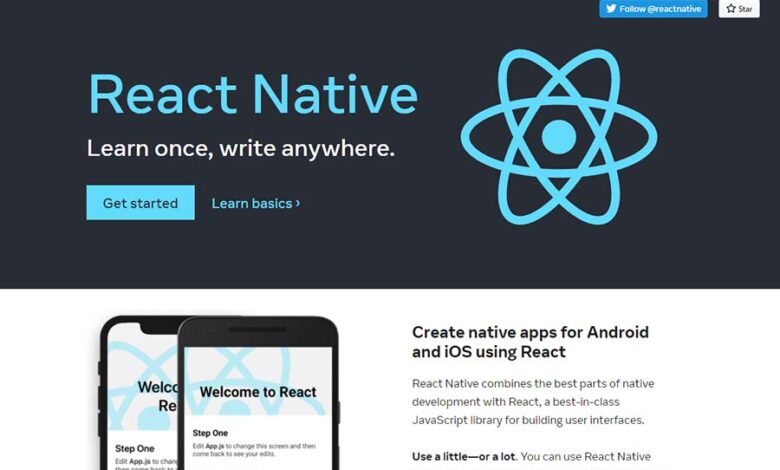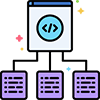
React Native Pros and Cons
React Native is the most popular cross-platform mobile framework in the world according to Statista . It was launched by Facebook in 2015 and is now maintained by a large and active global community of developers.
With React Native, developers can build cross-platform apps for a variety of platforms including iOS, Android, Windows, and the web.
How come React Native has become so popular in a relatively short time? Looking at the advantages it brings developers can shed some light on that.
React Native Pros and Cons – The Pros
 React native is a JavaScript-based open-source framework that Facebook uses as part of their technology stack. Its popularity and active development make it a very attractive framework for developers who need to get the job done fast.
React native is a JavaScript-based open-source framework that Facebook uses as part of their technology stack. Its popularity and active development make it a very attractive framework for developers who need to get the job done fast.
- Simplifies Development – React Native enables developers to build multiple apps for different platforms at the same time and do it in a timely and cost-effective way. It streamlines cross-platform app development while also reducing costs compared to building different apps for different platforms.
- Easy to Learn – An important reason for the framework’s widespread adoption is its flat learning curve. New developers and experienced ones alike can start using the platform right away.
- Native-Looking Apps – Apps built with React Native don’t feel like cross-platform creations but authentic native apps. The user interface is beautiful and engaging for users—on par with that built natively for the platform.
- Engaged Community – React Native enjoys a huge code repository and an active and supportive community. This makes it a very attractive platform for sophisticated, long-term app development projects.
- Strong Performance – Apps built with React Native perform very well and integrate smoothly with native tools and technologies. When choosing this platform, developers don’t have to worry about compromising performance in any way.
- Affordable – Not only is the platform open source, but the wide range of code libraries available empower developers to create powerful apps using time and resources effectively.
- Hot/Live Reload – This feature enables developers to see the changes they are making to the code in real-time without having to rebuild the app—which is a major time-saver and ensures a smoother development workflow.
React Native Pros and Cons – The Cons
 As you may imagine, React Native also has some weak points. Developers sometimes complain that it’s still not as flexible as it could be or that third-party plugins could pose a security risk. Let’s take a closer look at the possible cons you may have to deal with when choosing React Native.
As you may imagine, React Native also has some weak points. Developers sometimes complain that it’s still not as flexible as it could be or that third-party plugins could pose a security risk. Let’s take a closer look at the possible cons you may have to deal with when choosing React Native.
- Native Modules – When looking to add native features to a mobile app, such as those related to sensors, developers using React Native may not always find native modules they can easily add. Instead, they may have to add some custom code with the help of an expert in the platform they are building the app for.
- Navigation Issues – While React Native apps look like native apps, navigation may leave something to be desired. This is not usually a problem when it comes to simple apps, but for more sophisticated apps, users may notice the difference.
- Issues with Visual Effects – Adding certain visual effects to an app with React Native may not always lead to smooth results—this is true of some of the more advanced transitions, for example.
- App Updates – Repeatedly updating an app as operating systems launch major new features takes considerably longer compared to native app development since the framework must be updated itself first.
- Security Gaps – Plugins developed by third parties are important for React Native development. But since these are not developed by the official team behind the framework, they may create security vulnerabilities.
React Native Pros and Cons – The Bottom Line
At the end of the day, React Native has a lot to offer developers and companies looking to build cross-platform apps for mobile, web, and other platforms. With the strong support it has now from Facebook and developers around the world, it looks like a dependable choice for long-term projects. If you’re looking for a fast and effective framework for cross-platform development, React Native stands out as one of the best choices around.
